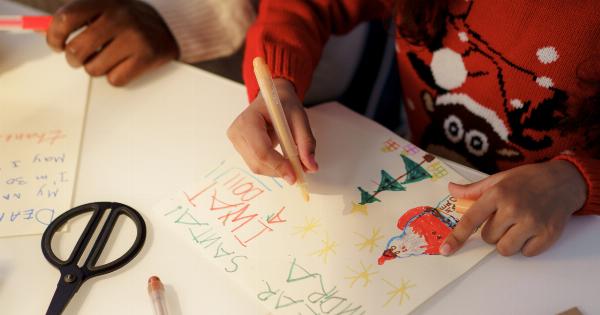As parents, one of our biggest responsibilities is guiding our children to make the right choices.
Teaching them to think critically and make informed decisions not only helps them navigate their day-to-day lives but also sets the foundation for their future success. When children learn to make good choices, they become more confident, develop problem-solving skills, and gain a sense of independence. In this article, we will explore some effective strategies for guiding kids to make right choices.
1. Lead by Example
Children are more likely to emulate the behaviors they see in their parents or guardians. Therefore, it is essential to model good decision-making in your own life.
Demonstrate honesty, ethical behavior, and the ability to weigh consequences before making choices. By being a positive role model, you can set a strong foundation for your child’s decision-making skills.
2. Provide Clear Expectations
Children may not always know what is expected of them or what the consequences of their actions might be. Take the time to establish clear expectations and explain the reasoning behind those expectations.
If your child understands the potential outcomes of their choices, they are more likely to think before acting.
3. Encourage Open Communication
Create an environment where your child feels comfortable discussing their thoughts, concerns, and questions with you. Be an attentive and non-judgmental listener.
When your child feels heard and understood, they are more likely to seek your guidance when faced with difficult decisions.
4. Teach Problem-Solving Skills
Help your child develop problem-solving skills by presenting them with age-appropriate challenges. Encourage them to brainstorm solutions, consider various perspectives, and think critically about the potential outcomes of each option.
By teaching them to approach problems in a systematic way, you are empowering them to make thoughtful choices.
5. Foster Independence
While it is crucial to guide your child in decision-making, it is equally important to gradually foster their independence. Allow them to make choices within a safe and controlled environment.
This helps them build confidence, learn from their mistakes, and take responsibility for their actions.
6. Emphasize Consequences
Help your child understand that choices have consequences. Reinforce the idea that positive choices lead to positive outcomes, while poor choices may result in negative consequences.
This understanding will encourage them to think critically and make informed decisions.
7. Teach Media Literacy
In today’s digital age, children are exposed to vast amounts of information through various media platforms. Teach your child to be critical consumers of media by discussing the credibility and reliability of sources.
Help them understand that not everything they see or read online is accurate, and encourage them to think critically before accepting information as true.
8. Practice Role-Playing
Role-playing scenarios with your child can be an effective way to teach decision-making skills.
Create hypothetical situations that require making choices and guide your child through the process of considering alternatives, weighing consequences, and making informed decisions. Role-playing helps children develop their critical thinking abilities in a safe and supportive environment.
9. Encourage Self-Reflection
After your child makes a choice, encourage them to reflect on the outcome. Help them evaluate whether their decision was the right one and discuss what they could have done differently.
By fostering self-reflection, you are encouraging your child to learn from their experiences and make better choices in the future.
10. Celebrate Good Choices
When your child makes a good choice, be sure to acknowledge and celebrate it. Positive reinforcement can motivate your child to continue making right choices. Praise their efforts, and let them know you are proud of their decision-making skills.




























